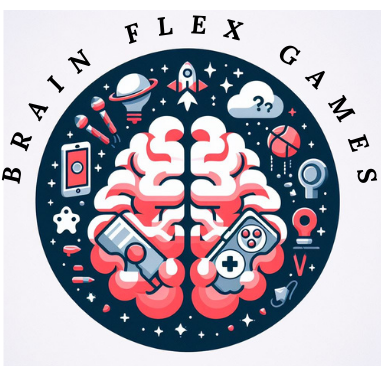NeuroGrow is a game turning heads for its innovative take on mental health treatment, especially for older adults.
Dr. Sarah Shizuko Morimoto leads the way in her venture into the world of digital medicine.
It is a video game that helps with depression. Mainly the game is a virtual garden.
This project is part of a growing field that blends the lines between healthcare and technology, aiming to alleviate symptoms of depression with the power of play.
That’s something pretty wild and equally fascinating.
So this brings the question: what makes NeuroGrow different from other games?
Well, it’s not just an engaging pastime; it’s developed with a purpose.
Using interactive gameplay, it seeks to refresh the brain’s frontal lobe circuits – those often resistant to antidepressants in older adults.
That’s the strategy I like to leverage when it comes to merging science and entertainment.
Revitalizing the Mind: NeuroGrow’s Purpose and Underlying Mechanism
NeuroGrow isn’t just another video game; it’s a therapeutic tool with a crucial mission.
Its design is deeply rooted in the goal of addressing a phenomenon that is well-recognized in the medical community but not widely discussed outside of it – the disuse atrophy hypothesis.
This theory suggests that, much like muscles that atrophy when not used, certain brain circuits can deteriorate if they’re not engaged, especially as people age.
I’m going to lay out how NeuroGrow tackles this challenge head-on by focusing on the frontal lobe.
That’s the part of the brain where our executive functions live – stuff like decision-making, emotional control, and problem-solving.
When these areas weaken, depression can take a stronger hold, reducing the effectiveness of antidepressants.
Here’s the fascinating part: by guiding players through the nurturing of a virtual garden, NeuroGrow specifically targets these vulnerable circuits.
Choose something that resonates with you, and it might be the very act of strategizing over which virtual plants to water first, or deciding how to respond to changing game scenarios.
This strategic targeting could, in theory, lead to the restoration or enhancement of the ‘cognitive infrastructure,’ which in layman’s terms means beefing up the brain’s resilience against depression.
If you’re intrigued by the idea that engaging with a video game could possibly turn the tide in the battle against depression, particularly for older adults, then NeuroGrow’s clinical trials might just catch your full attention.
Cultivating Well-Being: Inside the World of NeuroGrow
NeuroGrow is a mental health intervention designed to combat depression.
Imagine yourself tending a digital garden, where every plant represents a facet of your cognitive well-being.
This isn’t just about watering plants; it’s also about watering the seeds of your mind.
In NeuroGrow, the garden you care for comes with evolving demands and conditions, mirroring the ever-changing challenges of life.
The game’s clever design deliberately targets and strengthens neural circuits in the frontal lobe of the brain, the area associated with higher cognitive skills and emotional regulation.
By steering players through a variety of cognitive exercises, NeuroGrow doesn’t just passively entertain.
It actively engages the brain in ways that have been carefully crafted to improve mood and cognitive function.
Each task, each decision within the game, is a step toward pushing back against the shadows of depression.
Woven into the gameplay are specific tasks that, according to researchers, could function as a viable countermeasure to depression symptoms, especially among older adults.
That’s the strategy I like to leverage when considering the role of video games in mental health: it’s about tangible outcomes, not just theoretical promises.
Beyond Pills: NeuroGrow’s Innovative Role in Digital Medicine
NeuroGrow isn’t just a testament to the ingenuity in game design; it’s a beacon of innovation in the realm of mental health treatment.
By offering a software-based alternative to traditional medication, NeuroGrow stands at the forefront of digital medicine – a growing field that fuses technology with healthcare to address complex challenges like depression.
The generous funding from the National Mental Health Institute to the tune of $7.5 million doesn’t just showcase confidence in the University of Utah’s ambitious project; it’s a nod to the potential paradigm shift in how we approach mental wellness.
The clinical trials spearheaded by Dr. Sarah Shizuko Morimoto are not only crucial for validating NeuroGrow’s efficacy; they also pave the way for further innovation in treating mental health without relying solely on pharmaceuticals.
Collaboration is key in this venture, and the alliance between the University of Utah and the University of Connecticut exemplifies this.
Such partnerships amplify the resources and expertise dedicated to nurturing promising therapeutic avenues like NeuroGrow.
As we await the results from these trials with bated breath, the excitement within the scientific and gaming communities is palpable.
The potential impact is vast – offering a glimmer of hope for older adults grappling with depression, and possibly setting a precedent for addressing other mental health conditions.
Looking to learn more about NeuroGrow and stay updated on its journey?
I highly recommend visiting the NeuroGrow Brain Fitness Center website. It’s a source of rich information for those intrigued by this pioneering intersection of video games and mental health.
